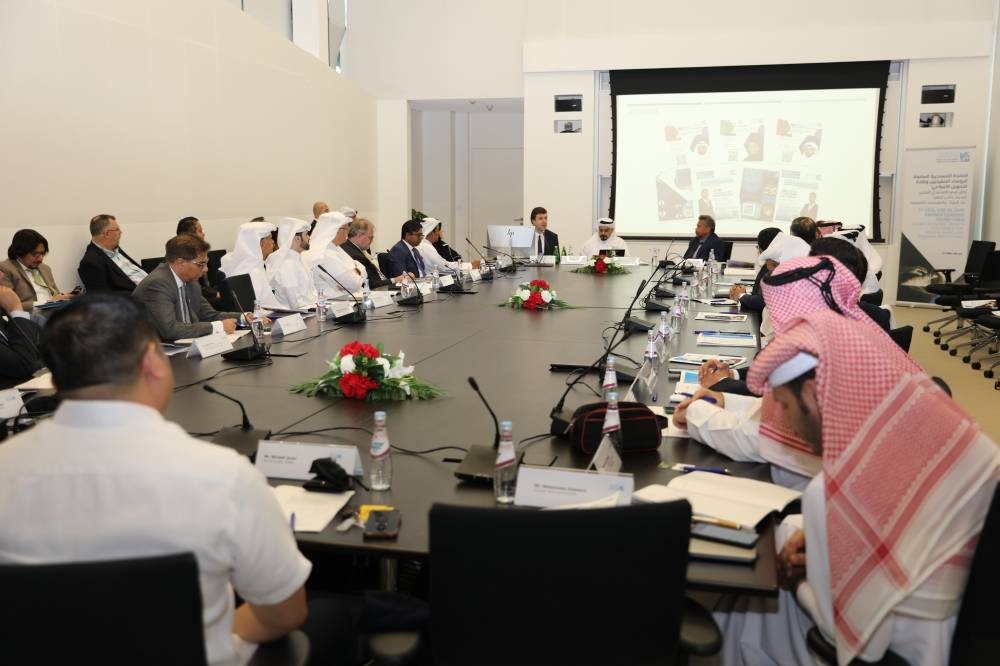The College of Islamic Studies (CIS) at Hamad Bin Khalifa University (HBKU) hosted the seventh edition of its CEOs and Islamic Finance Leaders Roundtable on February 28 at the Minaratein building.
Organised by the Centre for Islamic Economics and Finance at CIS, this year’s roundtable brought together c-level executives from Qatar Central Bank, Qatar Financial Centre (QFC), Qatar Development Bank, Qatar International Islamic Bank, Qatar Islamic Bank, Dukhan Bank, Lesha Bank, Citi Islamic Investment Bank and other Qatari banking and Islamic finance institutions.
Held under the theme 'Qatar’s Economic Growth Post-World Cup: Role of Banks & Financial Institutions', the roundtable saw Yousuf Mohamed al-Jaida, CEO of QFC, give the keynote address.
The participants’ discussions centred around three critical issues that demand attention and require insights for innovative solutions from Qatar’s banking and Islamic finance sectors: Qatar’s aim at becoming a hub of Islamic sukuk, the Qatar Fintech Strategy, and the Qatar National Climate Change Action Plan. Together, they highlighted the opportunities and challenges borne from these subjects and how they can collaborate with one another and the Qatari government to address them.
“As Qatar seeks to diversify its economy after hosting the world’s largest football tournament, financial institutions will be major players in this collective effort. This roundtable is the ideal platform where decision-makers and leaders from across the country’s financial sector can convene and discuss opportunities to collaborate to realise future economic growth. Furthermore, it allows CIS to share relevant insights into the topics discussed through the lens of our rooted Islamic traditions and scholarship,” said Dr Recep Senturk, dean of CIS.
In his keynote address, al-Jaida said: “Qatar’s mission to become an Islamic Sukuk Hub offers vast opportunities for Islamic finance firms to grow in and from the country. Against this backdrop, the Qatar Financial Centre has launched the Sustainable Sukuk and Bonds Framework, based on the International Capital Markets Association’s Green Bond Principles, Social Bond Principles and Sustainable Bond Guidelines – the first regulatory framework of its kind in the GCC.”

Senior leaders in the banking and Islamic finance discussed their role in the country’s economic growth after hosting the world’s largest football tournament.
